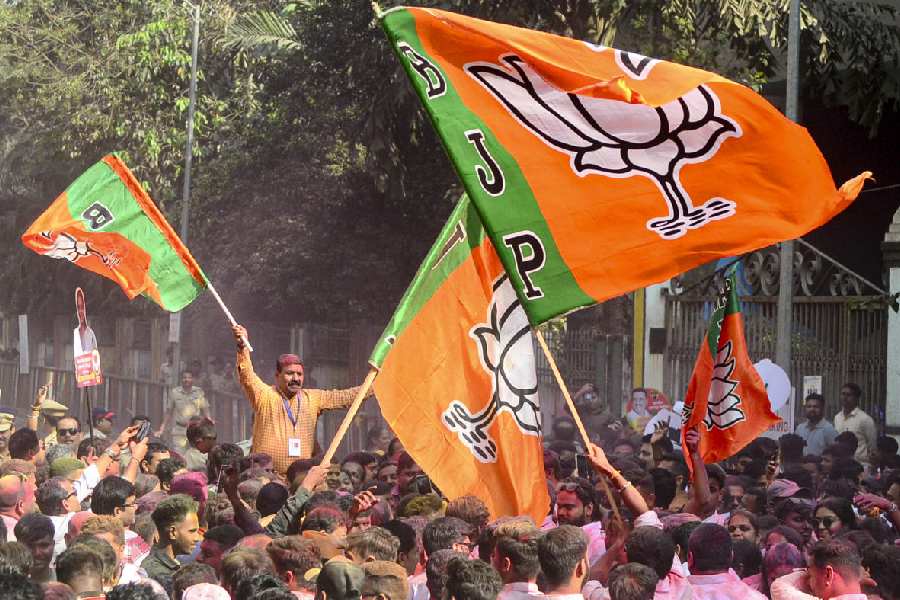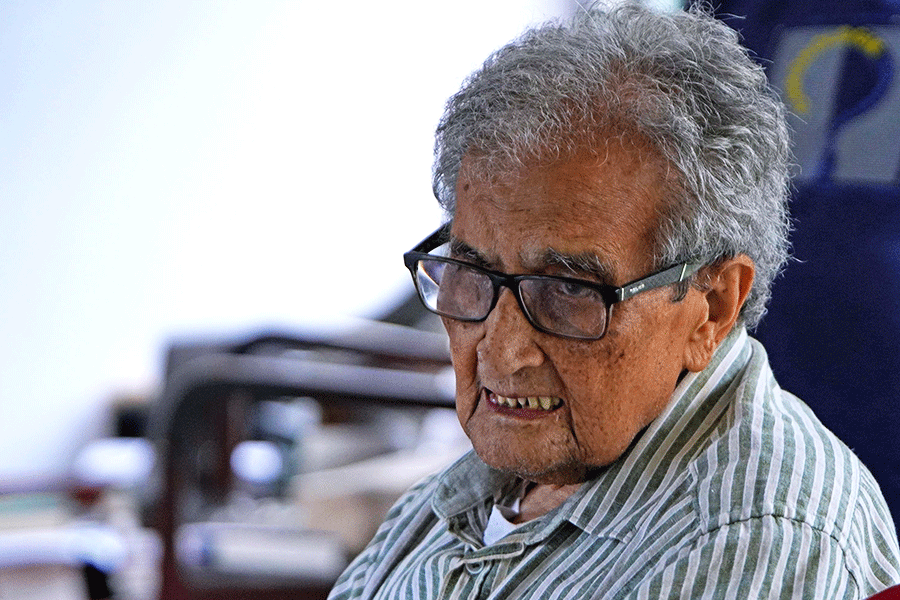 |
 |
| Devotees at the Ranchi railway station before leaving for Deoghar;a python on the stone idol of Lord Shiv in Ranchi |
Nature’s beauty is at its peak in the month of Shravan — the holiest period for the Hindus. While mother nature is in full bloom, people across the country prepare for the festival with elan.
As cities and towns rant with loud calls of bol bam and har har mahadev, kanwarias head to the shrine of Lord Shiv to offer water. Deendayal Sharma, a priest in Ranchi, said: “The holy month of shravan is considered to be of immense sanctity in the country. It is a long-standing belief that Lord Shiv grants all wishes of devotees during this month if he worships him with utmost faith.”
One of the major attractions of the month-long festival is the shravani mela. Considered to be one of the grandest in the region, the festival has several unique features. For here, one finds a variety of items, especially made for rituals and worships.
A visit to the busy lanes of Mahavir Chowk in the capital and one will find the holy colour saffron ruling the roost. One would be amazed to see shopkeepers selling a large variety of saffron coloured accessories.
Sunil Murarka, owner of Pratima Hosiery in Upper Bazaar, Ranchi, says: “The business that we do during this part of the year, is specially targeted to pilgrims who will visit the shrine of Lord Shiv at Babadham in Deoghar. Keeping this in mind, we bring all the articles that will be used in the pilgrimage.” Among the articles that are sold for the festival, Murarka says the most important is the attire.
“Basically, devotees purchase a handy bag to keep small items of basic use during their long and arduous journey, the banyan, shorts for men and simple saris for women devotees. All the garments are saffron in colour as it depicts austerity,” says Murarka.
However, over the years the dress code for Shiv devotees have undergone a sea change. Now even the devotees dress in a modern way.
“Just look at the transformation. Previously male devotees would wear langots but today that has given way to shorts and T-shirts. For women, the salwar kameez has replaced the traditional sari,” points out Murarka.
During this month, groups of people cutting across caste and communities collect water from the holy Ganges at Sultangang and offer it to Lord Shiv at Baidyanath Dham in Deogarh after a long and arduous journey of about 100km on foot.
Keeping in sync with the changing times, even the kanwars — a stick on which pots of holy water to be offered to the Lord is carried — has undergone a change.
“Unlike the past, when wooden rods were used as kanwars, today we have designer ones. The rod is made of aluminum or brass and the pots attached to it are decorated with coloured beads. They also have golden and silver coloured strings attached to them,” said Manish Modi of R.K. Sales at Kokar who earns a profit of Rs 2 lakh this season only by selling kanwars.
“Our customers are not only from Ranchi but include devotees from nearby places like Palamau, Lohardaga, Simdega and Girdih. We purchase all the material from manglahaat, a weekly bazaar held at Calcutta and get the work done here in the capital from local craftsmen,” explains Modi.
A member of the Shiv Mandal, an organisation that has been participating in voluntary services for pilgrims for the past one decade, says that several medical and educational camps are held along the Sultanganj to Babadham route. “Anybody who gets injured or falls sick is immediately attended by teams like these. We try to make the journey comfortable and lively for all devotees,” he says.
The famous peda of Babadham which is taken as prashad in bulks by devotees, has an interesting ingredient.
“These pedas are made of camels’ milk. A large quantity of camel’s milk arrives from Rajasthan and the peda is then made from it,” says Ashok Vaidya, who puts up a sweet stall at Deoghar every shravan.










